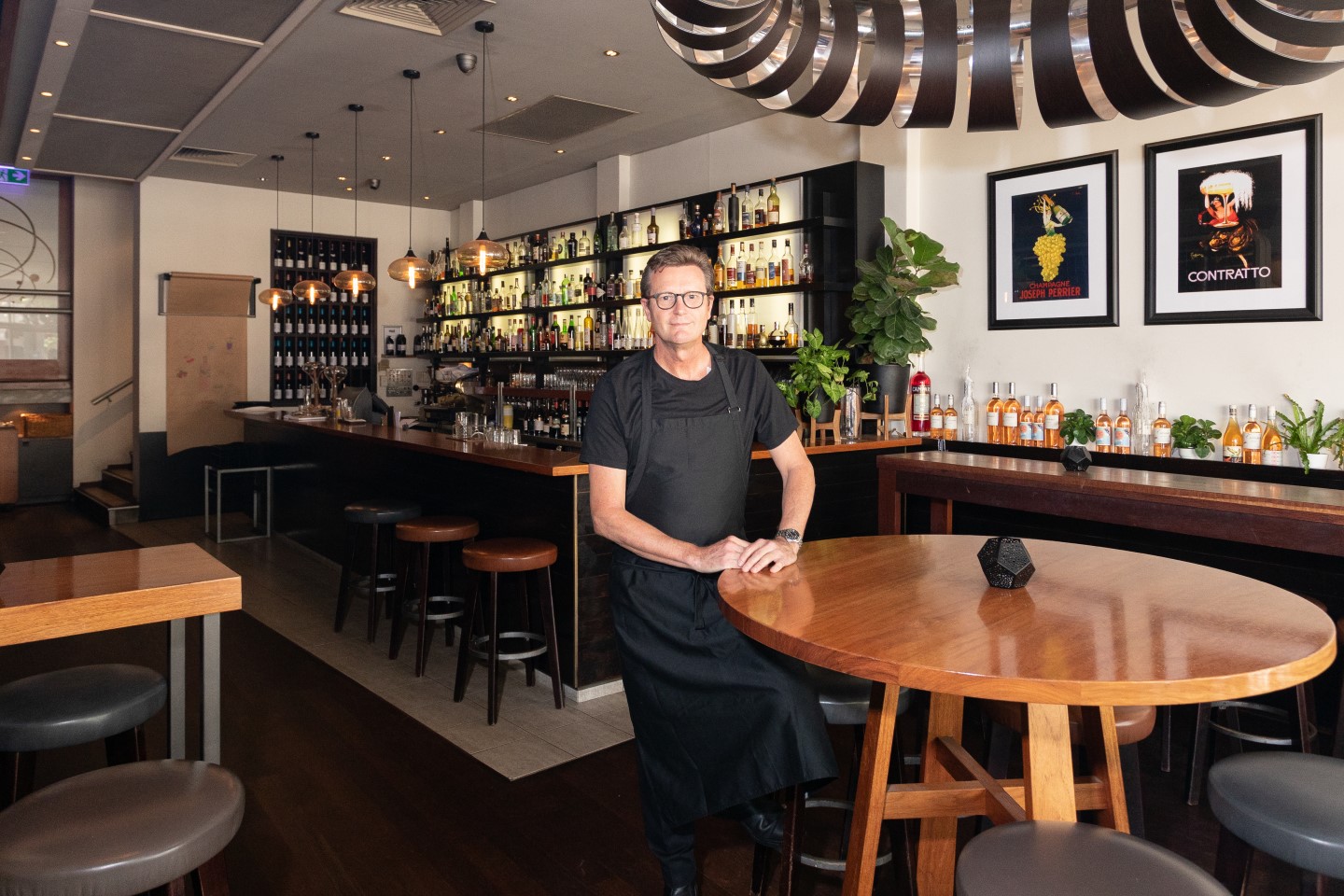

Hospitality businesses are making difficult decisions about whether to stay open and offer takeaway options or close.
Business owners in the hospitality sector are racing to shore-up their operations amid the massive social upheaval resulting from the novel coronavirus outbreak.
Tens of thousands of people employed in the sector have already lost work and many cafes and restaurants have closed their doors.
Must Winebar general manager Russell Blaikie was among the first to implement a takeaway menu in an effort to trade through the crisis, after bookings slowed in mid-March.
Mr Blaikie said he had received an overwhelming response to his first week of trade, offering a call-and-collect service and deliveries in the local area.
“It’s doing food that has come out of the kitchen before that is tailored for the take-out market,” he said.
“It’s healthy, it utilises completely fresh Australian produce; that has been the key in writing that menu so I can support local producers, and I think it’s pretty good value.”
The initiative means staff who were laid off have been redeployed to answer phones and deliver food.
However, Mr Blaikie told Business News he didn’t want to be responsible for spreading the virus and had added clauses into his employees’ contracts to ensure they self-isolated when not at work.
“Naturally, nobody has disagreed with that,” he said.
“I take it really seriously and the good thing about it is I’ve got eight people employed, which is fantastic.”
Mr Blaikie said while the government stimulus packages had been helpful, the big issue threatening hospitality venues was rent.
"It [government stimulus packages] goes part way to assisting us, however, any hospitality business looking at their P&L sheet today is looking at the glaring item that will bring them down and that is their rent," he said.
"To delay payments on rent is simply to push the iceberg a little bit further away from the Titanic."
David Heaton, chair of Capitol Corp, which owns Amplifier, soon-to-be-opened Magnet House, The Edison, Metropolis Fremantle, The Newport Hotel, The Breakwater and The Lookout, agreed and said rent payments were a threat.
"Most landlords have been pretty good [but] I’ve got one landlord in particular that’s really not relenting and that’s probably the biggest risk to us at the moment; landlords not giving us a rent reprieve or coming to some sort of arrangement that actually helps us," Mr Heaton said.
"Given that the banks are giving repayment breaks, mortgage holidays, excetera, then there really is no need for landlords to be pressing us for their rents in this troubled time."
Mr Heaton said it wasn't good for the government or the community if his otherwise healthy business went under because of the fallout from the pandemic.
"It’s no good if we can’t get back off the ground on the flipside of this thing," he said.
"If we go under because we have paid rent to a landlord who’s not prepared to cut us any slack, then that would be a shame for the community and all those people who rely on us."
Capitol Corp made the decision to close its nightclubs last week and chose not to deliver takeaway from its other hospitality venues when the federal government ordered pubs and restaurants to close on Sunday night.
He said although operating on a takeaway basis remained a possibility, the business had been caught out by the speed of the government’s announcement on hospitality venue closures.
“We thought we would have until Wednesday or Thursday but they shut it down straight away on Sunday night, which gave us not much time to react,” he said.
“It’s not off the cards that we will open up for takeaway, but the way things are going, I don’t even know if takeaway is going to be open.
“If we go into a full lockdown, supermarkets might be the only things that are allowed to remain open.
“That’s the story from our end; it’s not that we can’t reopen but to get onto Uber Eats, at this stage, I would imagine is going to be rather difficult.”
Instead, Mr Heaton said he was positioning his business for a rebound and ensuring his 300 employees were okay, particularly those on working holiday visas.
“Our mission right now is to preserve our business and keep it as healthy as we possibly can, keep in touch with all our casuals, respond to people who are having particular hardships,” Mr Heaton told Business News.
Other venues including Crown, The Royal Hotel and Little Creatures Brewery have decided to close over this period.
The food truck industry has also been decimated by the restrictions introduced to stop the spread of COVID-19.
Meast Food Truck owner Sandra Bahbah said she knew she needed to act quickly when the federal government banned mass gatherings of more than 500 people.
Ms Bahbah, who employs her mother and her sister, had been working on a cookbook and decided she needed to fast-track it.
In the space of a few days she created an online cookbook, called the Quarantine Cookbook, with 14 recipes that use staple items for the two-week self-isolation period. At the time of publishing, Ms Bahbah had sold over 140 copies.
“It’s not a lot of money … but it’s something until I can figure out my next steps really,” Ms Bahbah told Business News.
“It’s just creating a buffer, a little bit of cushioning.”
Ms Bahbah is also delivering falafel and frozen haloumi chips.












